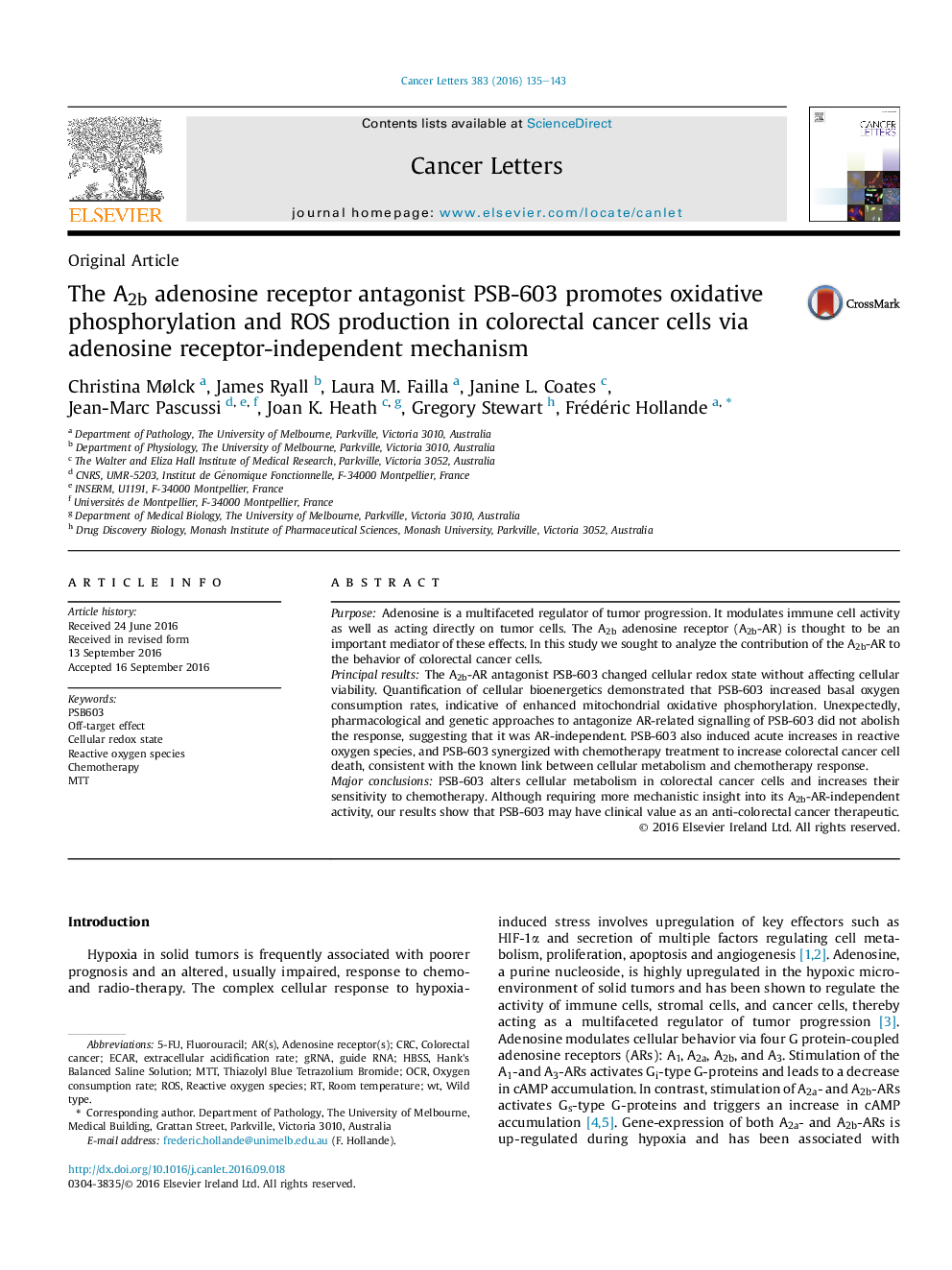| Article ID | Journal | Published Year | Pages | File Type |
|---|---|---|---|---|
| 5525619 | Cancer Letters | 2016 | 9 Pages |
â¢Adenosine receptor antagonist PSB603 altered metabolism of colorectal cancer cells.â¢Cellular growth and viability was unaffected by PSB603.â¢The metabolic effects included increased oxygen consumption and ROS generation.â¢The metabolic effect of PSB603 was adenosine receptor-independent.â¢PSB603 treatment increased cell sensitivity to chemotherapy.
PurposeAdenosine is a multifaceted regulator of tumor progression. It modulates immune cell activity as well as acting directly on tumor cells. The A2b adenosine receptor (A2b-AR) is thought to be an important mediator of these effects. In this study we sought to analyze the contribution of the A2b-AR to the behavior of colorectal cancer cells.Principal resultsThe A2b-AR antagonist PSB-603 changed cellular redox state without affecting cellular viability. Quantification of cellular bioenergetics demonstrated that PSB-603 increased basal oxygen consumption rates, indicative of enhanced mitochondrial oxidative phosphorylation. Unexpectedly, pharmacological and genetic approaches to antagonize AR-related signalling of PSB-603 did not abolish the response, suggesting that it was AR-independent. PSB-603 also induced acute increases in reactive oxygen species, and PSB-603 synergized with chemotherapy treatment to increase colorectal cancer cell death, consistent with the known link between cellular metabolism and chemotherapy response.Major conclusionsPSB-603 alters cellular metabolism in colorectal cancer cells and increases their sensitivity to chemotherapy. Although requiring more mechanistic insight into its A2b-AR-independent activity, our results show that PSB-603 may have clinical value as an anti-colorectal cancer therapeutic.
